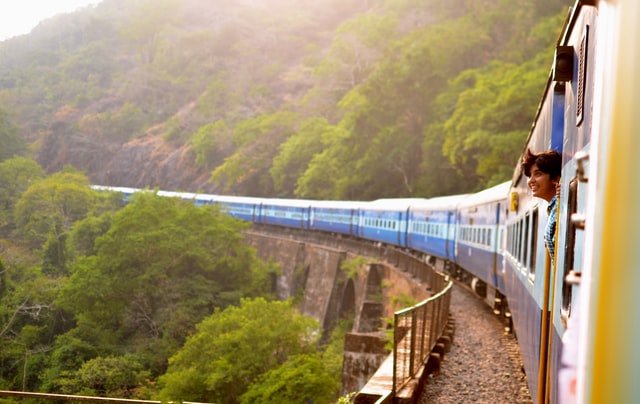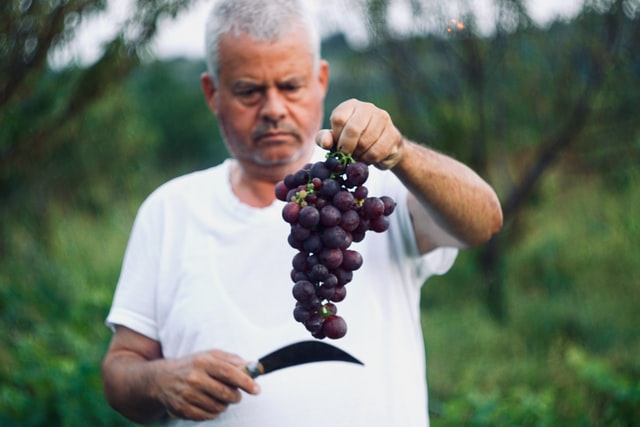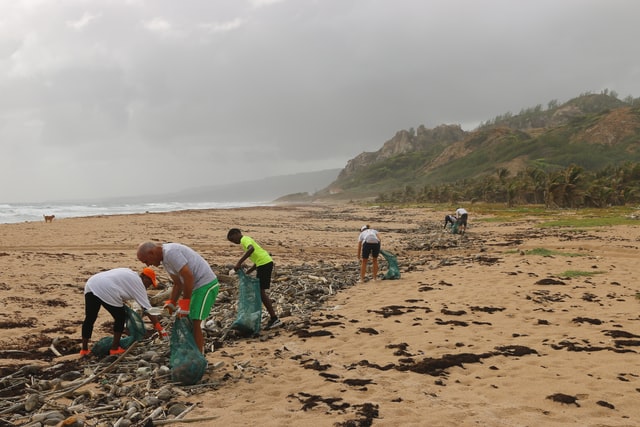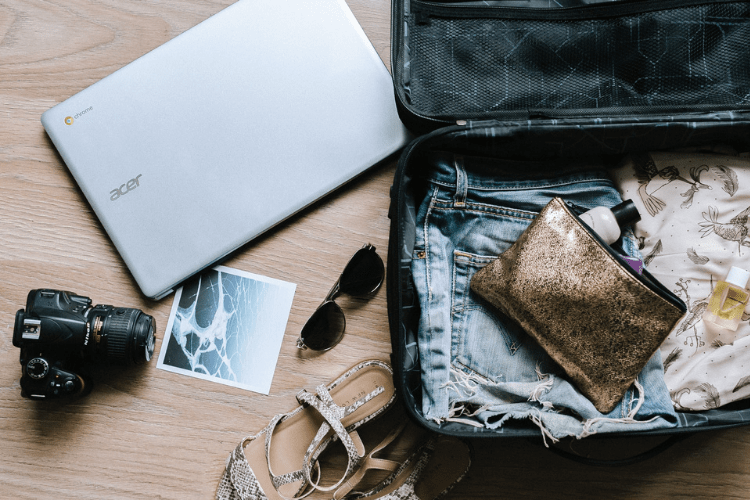Countries are beginning to open their borders. Planes are rumbling through the sky again. Ambitious leisure travelers are dipping their toes into their first post-pandemic flights. And the ubiquitous press trip is back up and running.
Travel content creators — whether travel writers, social media influencers, photographers, videographers, or some combination of all of these — are an essential link between consumers/potential travelers and the places they travel. If you are a content creator, realize that you stand on the brink of a pivotal moment.
Why? Several surveys and projections indicate that 2021 will be a year of tourism’s rebound. That’s good news financially for content creators in general, who were hit exceptionally hard when the coronavirus swept across the world earlier this year. But this news doesn’t bode well in terms of health, equality, or sustainability for destinations and local communities if this rebound takes the same shape it did in late 2019.
As travelers begin to make plans for future travels, you — as a content creator — are a key gatekeeper for helping them make smart, responsible, and thoughtful decisions. Know that your influence matters a great deal. People look to you for advice, and the behavior you model has an impact, especially for younger consumers and women.
Taking full stock of this influence, you have a chance right now to commit to conducting your work as a content creator with a more thoughtful mindset. In order for tourism to build back better, the tourism industry needs you.
This is your invitation to embrace that responsibility.

Photo by Kate Joie on Unsplash
Rethink Your Scope of Work
A vast majority of content creators took the pandemic pause to pivot their businesses and create new revenue streams. As travel begins to pick back up, it may be tempting to toss it all in and go back to what is comfortable, familiar, and fun. But before you do, think about how you can conduct your work in a more responsible way.
- Incorporation of sustainable practices.
Up until now, some content creators specialized in sustainable travel. The truth is, travel needs to become sustainable by default in order to truly be beneficial to people and the planet. Until society as a whole gets to that point, though, think carefully about each decision you make when accepting assignments and planning trips. Make sustainable and responsible practices the default in your decision-making, and model that behavior for your followers and readers.
- Diversify your niche.
If you have historically worked in a travel-related niche that has contributed toward environmental or socio-cultural problems, now is the time to move on. Some of the more problematic sectors include cruising, aviation, luxury, and hotel accommodations. While there are exceptions to every rule, these sectors tend to have particularly large negative environmental impacts and greater leakage. (Not sure what leakage is? Check out this guide to learn more.)
This isn’t to say these sectors shouldn’t be covered in travel content, but it’s time to be far more discerning and honest when covering these sectors. The damage certain travel activities cause can no longer be stuffed into the dark corners of content creation. - Think beyond the work.
As travel content creators with a public-facing persona, you walk a blurry line between work and play. You are a model of behavior, which means your actions follow you all the time. You need to send a clear message to your followers and readers all the time, which means you can’t deviate from the message that responsible travel matters to you. Embracing sustainability is ongoing work that doesn’t end with your actual content creation work. You must make a commitment to responsibility as a compassionate person who cares about the future of the planet and human race.

Photo by JK on Unsplash
Place Value Over Volume
As you get back on your feet financially, it’s going to be tempting to take any and all assignments that come your way. That makes sense. These last several months have been incredibly difficult professionally and financially, but if you are able, place priority on value over volume in all aspects of your work.
- Fly less, visit longer, and have more meaningful experiences.
As frequent flyers, travel content creators need to be much more mindful of their negative impact on the environment. Jetting around the world needs to be replaced with more mindful travel planning that bulks research trips and takes advantage of overland transportation.
It’s important to note there is value in visiting places as a fly-by journalist or out-of-town influencer. However, this is also the perfect time to think about how you can develop meaningful partnerships with local tourism boards that are far less taxing on the environment.
- Avoid assignments that don’t offer context.
It’s time to stop “selling” places because they serve as pretty backdrops — and it’s time to force media outlets and clients to do the same. Destinations are unique because of the historical and cultural context that defines them — so find out what that is and share it with your readers and followers. In order to promote a more equitable and sustainable future, we all have to be willing to grapple with complicated stories, even if they make us uncomfortable. - Don’t sell out if it means sacrificing someone or something else.
Subtle mentions of destructive practices (like wildlife encounters) may please your hosts, but they perpetuate inappropriate behavior on behalf of travelers. As a person of influence, what you promote matters, so avoid promoting dangerous activities even if it means you may need to pass on an assignment.

Photo by Daniel Christie on Unsplash
Resist Dangerous Narratives and Language
At the end of the day, it is the words and images you use — and the stories you share — that reach readers and followers. Their perceptions and expectations are shaped based on what they read and see. Even though you are likely quite skilled in writing, taking photos, and sharing content, this is the perfect time to make sure that what you intend to say doesn’t cause undue harm.
- Avoid colonial language.
The act of travel is heavily centered in colonialism, and the language used to describe travel-related activities is too. Think carefully what you intend to say when using words like “exotic,” “discover,” “explore,” and “authentic.” Using terms like these without context can contribute to ongoing oppression and silencing of and violence directed toward marginalized communities, gentrification, and commodification of people and cultures.
- Be mindful of and acknowledge your perspective and bias.
Everyone carries personal bias and perspective. There’s nothing wrong with this, but it’s important to understand how your personal history and story shape your work. Realize your perspective and bias influence what stories you tell and how you tell them. Again, your readers don’t know the backstory to your content creation, and you are responsible for providing necessary context. - Kick the bucket (list).
Travel is so much more than ticking off a list of must-see sites. As a frequent traveler, you probably know this, but do your followers? Just as you can build back better as a content creator, you can help your followers adopt a more responsible and thoughtful way of traveling.

Photo by Brooke Cagle on Unsplash
Double Down on Collaborative Partnerships
If one thing was made crystal clear by the pandemic pause, it was that collaborations are key to the tourism industry’s survival. That’s likely to be the case in the coming months and years. Find creative ways to work with others in order to help lift the entire industry up without caving into unhealthy and mutually destructive competition.
- Understand the shared sustainability-focused goal.
When discussing projects with destination partners and tour operators, talk about how to responsibly promote offerings. Ask if they have language, stories, or strategies related to sustainability that you should know about. While it is important to share your own honest experience, you and your tourism-related partner should both have the shared goal of supporting local people and communities. It’s your collective job to determine the most impactful way to do that.
- Support other content creators who are committed to responsible travel.
Lean into other like-minded professionals to expand your network, idea bank, and reach. Share relevant and responsible content for your readers on social media. Normalize sustainable tourism for travelers by getting as much engaging, high-quality content out into the world as possible. Your colleagues can help fuel that goal.

Photo by Mert Guller on Unsplash
Stand Up and Speak Out
Your followers are desperate to escape their locked-down lives, but when they travel again, they’re heading out into a changed world. People are far more aware of how unsustainable and inequitable the systems and structures are that currently make up our global societal fabric. You need to take that awareness with you on the road — and help your followers do the same.
- Put locals’ interests first.
For far too long, travel has been traveler-focused, often to the detriment of local communities and people. Everything you do in the course of your work should focus on this question: “Is this in the best interest of the people who live in this destination?” Take action from there, always keeping locals’ needs and desires in mind. - Don’t be afraid to say no to editors or sponsors that endorse dangerous tourism practices and content.
Consumer-facing travel media is an important source of travel inspiration for readers. It is also largely supported by advertisers and sponsors. It thrives on clicks and views. As such, editors and publishers may lean into clickbait headlines, imagery and content that endorse colonialism, and stories promoting activities that harm people, wildlife, and the environment. The same is true for trip sponsors who create press trip itineraries.
Push back on these practices. This is a good opportunity to create awareness with the overarching gatekeepers to content, but it’s also just the right thing to do. All content creators need to speak up to flip the script on how the travel experience is framed. - Combat racism and oppression.
Even if you try to leave the overwhelming news about racial violence behind, it’s never far away. Being an ally never ends. You have a responsibility to speak up against injustices throughout all aspects of your work. Hold trip sponsors and partners responsible for diversifying their content creator pools. Offer your platform for those whose stories have traditionally been silenced.

Photo by Brian Yurasits on Unsplash
Empower Your Followers
Your readers and followers are not a passive audience. Travelers are the backbone of the tourism industry; without them, the industry ceases to exist. Remember that they make decisions, spend money, and have an impact on the places they visit. Help them make that impact a positive one.
- Don’t shame or lean on negativity.
Before the coronavirus swept across the world, tourism was accelerating at an unprecedented rate fringed with bad news and shame. When presented with negatively focused tactics and stories, people don’t feel compelled to change their behavior or way of thinking. Now is the time to empower travelers with a sense of ownership and hope.
As travelers, they can help the world get on track to reach the sustainable development goals. Their actions matter. Their mindsets matter. They have power to make a real and meaningful difference. This doesn’t mean that you have to sugarcoat anything, but it does mean the tone underlying your content is more impactful if it conveys a sense of hope.
- Share solutions.
In addition to leaning into optimism and hope, highlighting solutions that address the world’s most challenging issues helps close the loop on all the doom and gloom. Yes, the world is facing difficult challenges right now, but there are people, organizations, and initiatives developing creative solutions to those problems. Expose your followers to these solutions and help them understand how they can support them. - Be transparent about your work.
Ultimately, the content you put into the world is the content your followers consume. But, your followers don’t know what you don’t tell them. Moving forward, commit to being more transparent with your followers. Share your creative process and the ethical challenges. Disclose press trips and compensated experiences. Help them learn about the things they don’t know so they can make decisions armed with as much information as possible.
This is it, content creators. This is your opportunity to take a bold step and claim ownership over your vital and influential role. It is challenging to embrace this incredible responsibility, but it is essential. Doing so is critical for the future of the tourism industry and your work as a content creator in it.
What are you doing as a content creator to build back better? Share your ideas with others in the comments below!
Today is the best day to become a more responsible travel writer. Enroll today in Responsible Travel Writing: A Course for Content Creators.



